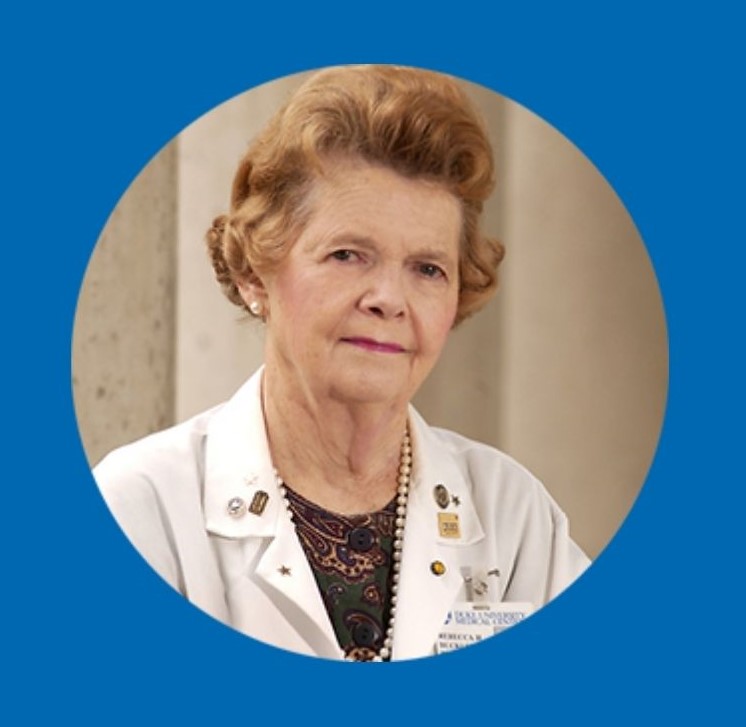
-
Understanding primary immunodeficiency (PI)

Understanding PI
The more you understand about primary immunodeficiency (PI), the better you can live with the disease or support others in your life with PI. Learn more about PI, including the various diagnoses and treatment options.
-
Living with PI
-
Addressing mental health
-
Explaining your diagnosis
- General care
- Get support
- For parents and guardians
-
Managing workplace issues
- Navigating insurance
-
Traveling safely

Living with PI
Living with primary immunodeficiency (PI) can be challenging, but you’re not alone—many people with PI lead full and active lives. With the right support and resources, you can, too.
-
Addressing mental health
-
Get involved

Get involved
Be a hero for those with PI. Change lives by promoting primary immunodeficiency (PI) awareness and taking action in your community through advocacy, donating, volunteering, or fundraising.
-
Advancing research and clinical care
-
Research Grant Program
-
Consulting immunologist
-
Diagnosing PI
-
Getting prior authorization
-
Clinician education
-
Survey research
-
Participating in clinical trials

Advancing research and clinical care
Whether you’re a clinician, researcher, or an individual with primary immunodeficiency (PI), IDF has resources to help you advance the field. Get details on surveys, grants, and clinical trials.
-
Research Grant Program
As a child growing up in Hamlet, North Carolina in the 1930s and ‘40s, Dr. Rebecca Hatcher Buckley slept in a bedroom next to the only phone in her home, and when it rang in the middle of the night, which it often did, she listened as her father, a physician, left to make house calls.
Her father’s dedication to his patients inspired Buckley to pursue her own career in medicine. Buckley is a pediatric allergist/immunologist at the Duke University School of Medicine, and a pioneer in the research and treatment of primary immunodeficiencies (PI), particularly severe combined immunodeficiency (SCID).

In honor of Women’s History Month, IDF shares its appreciation and admiration for Buckley, who has been a member of the IDF Medical Advisory Committee (MAC) for 40 years, chairperson and co-chairperson of the MAC since 2003, and a leader in the field of immunology during her tenure in the Department of Immunology at Duke University School of Medicine.
“I connect most strongly to Becky's role as a leader. She has always found a way to be simultaneously steely and gentle; stubborn yet practical. She has been a generous mentor and a beautiful role model for success in academia and even more importantly successful as a clinician-scientist who has contributed both at the patient level and to the critical knowledge base that underlies all that we do,” said Dr. Kathleen Sullivan, a pediatric allergist/immunologist at Children’s Hospital of Philadelphia (CHOP) and co-chairperson of the IDF MAC with Buckley.
“I think there is little more than one can aspire to and the fact that Becky has done it with such grace and gentility speaks volumes. She is one of the people I most look forward to seeing at meetings and most appreciate for her casual insights that pop up in every conversation. I recognize that I’m able to do the work that I do because of Becky, and I am thankful that she and I have been able to collaborate and work together as scientists and advocates in this field.”
Buckley built a career in medicine and research at a time when most women who worked outside the home were secretaries, teachers, or nurses. She earned a degree in pre-med from Duke University in 1954, and then applied to medical school at the University of North Carolina (UNC), where administrators asked her questions such as, “Why do you want to take a man’s place in the class?,” “When are you going to get married?,” and “When are you going to drop out of school?” according to an oral history interview of Buckley in 2007 conducted by Duke University.
“Those were very common questions at the time. It didn’t bother me. I just answered them and told them that I was going to go ahead,” said Buckley in the interview.
While attending UNC, Buckley married a fellow medical student from Duke, Edward Buckley, in the summer of 1955, and the following June the couple had their first child, one of four.
“I took the state board exams on the same date that my son was due to be delivered. My mother was standing outside the door ready to take me to the delivery room if it had happened. And all of my classmates were very nervous, afraid they were going to have to deliver me. But my son waited, and I got through the boards,” said Buckley in the Duke interview.
Buckley preferred pediatric medicine to general medicine and her mentors influenced her focus on allergy and immunology.
“When I was a fellow in training… parents brought their children in saying, ‘Well, my child always has infections. Can you tell me why my child is always infected?’ There were very few tests that could be done back then to evaluate the immune system. While I was a fellow in immunology, some of those tests were evolving, and I was able to establish those tests here at Duke. That started my lifelong career in the field,” she explained in the interview.
Buckley created tests quantifying levels of immunoglobulins IgA, IgE, IgM, IgD, and IgG to distinguish whether a child’s sickness stemmed from allergies or immune system deficiencies.
Research into immunoglobulins sparked her interest in severe combined immunodeficiency (SCID), a PI characterized by few to no T cells. Babies born with SCID have no protection against infection, and the condition is fatal unless treated with bone marrow transplant (BMT) or clinical trial gene therapy.
Buckley’s lab employed techniques to make BMT safer and more effective for babies with SCID. In the early days of BMT, babies transplanted suffered from graft versus host disease, in which the donor cells attack the baby’s organs. Unless the transplant was from a sibling donor who was a perfect tissue match, the baby developed GVHD which could be fatal.
Researchers developed a technique where they took the T cells out of donor cells to prevent GVHD. Buckley and her lab utilized this T cell-depleted method for BMT in babies with SCID, which allowed parents, who are only half-matched to their children, to donate cells to their children without causing GVHD.
The T cell-depleted approach also provided other benefits for the baby. Because the T cell-depleted method of BMT allowed the baby to make his or her own T cells from the donor cells, researchers didn’t have to use chemotherapy in babies to create space for the donated T cells.
Buckley’s lab also focused on immunity post-transplant, and researchers learned a great deal about the development of T cells and B cells and immunologic functioning.
“I think when many people think about Becky, they think about her impressive contributions to the field of bone marrow transplant. Indeed, Becky has saved the lives of hundreds of infants, many at a time when there was little optimism for their survival. In fact, Becky's babies at this point could probably populate an NCAA basketball bracket, a picture that I find especially beautiful,” said Sullivan.
“Becky's contributions to the field of bone marrow transplant are legendary and her contributions transformed the field early on as well as continuing to inform on every single innovation that has optimized care delivery in BMT.”
Buckley and her colleagues also conducted studies that paved the way for SCID to become part of the Recommended Uniform Screening Panel (RUSP), a list of disorders that the Department of Health and Human Services recommends for newborn screening.
Thanks to Buckley’s advocacy and research, and that of many others, SCID is now included in NBS throughout all 50 states. When a baby born with SCID is diagnosed and treated before three months of age, the child’s survival rate is greater than 90 percent.
All of Buckley’s accomplishments have taken place during her tenure at Duke University, where she did her internship, residency, postdoctoral training, and initially held an instructor position. She has been the J. Buren Sidbury Professor of Pediatrics from 1979 to the present and was Chief of the Division of Pediatric Allergy and Immunology from 1974 to 2003.
Her curriculum vitae contains dozens of honors including the Bret Ratner Award from the American Academy of Pediatrics in 1992, fellowship in the American Association for the Advancement of Science in 2000, election into the Institute of Medicine, National Academy of Sciences in 2003, the Lifetime Achievement Award from the Southeastern Allergy Association in 2010, election as a member into the National Academy of Sciences in 2011, recipient of the Scientific Achievement Award from the World Allergy Organization in 2011, and recipient of the Presidential Award from the Clinical Immunology Society in 2013.
“I've been president of several national organizations. Probably the most important one was the biggest organization for our specialty, the American Academy of Allergy Asthma and Immunology. In 1980, I was the first woman president of that organization. And I have been president of the American Pediatric Society, the Southern Society for Pediatric Research, and the Southeastern Allergy Association,” said Buckley in the 2007 Duke interview.
“Participating in national organizations has been a very important part of academic life here, and something that I always try to encourage all the young people to get involved with.”
Having authored or co-authored over 350 scientific research papers, Buckley said she enjoyed working in the field of medicine in a university setting because “it’s intellectually stimulating.”
“In academic medicine, you're going to see everything from mild things to emergencies. And learning how to cope with that and learning how to problem-solve, I think, is one part that is so enjoyable. Then there is teaching and seeing young people learn. And of course, helping patients. Finally, the opportunity is constantly arising to create new knowledge through research,” she said.
Diagnosis
Related resources
Sign up for updates from IDF
Receive news and helpful resources to your cell phone or inbox. You can change or cancel your subscription at any time.





The Immune Deficiency Foundation improves the diagnosis, treatment, and quality of life for every person affected by primary immunodeficiency.
We foster a community that is connected, engaged, and empowered through advocacy, education, and research.
Combined Charity Campaign | CFC# 66309




